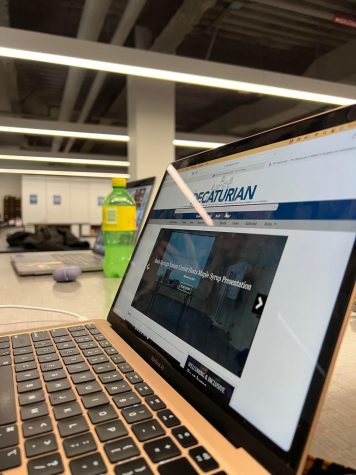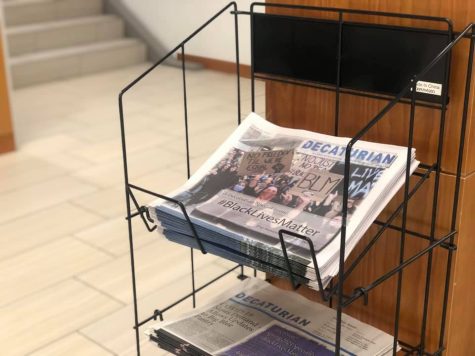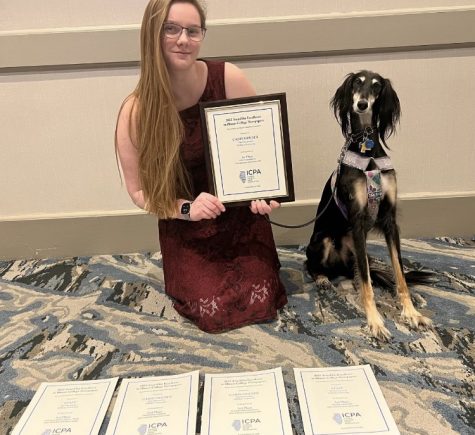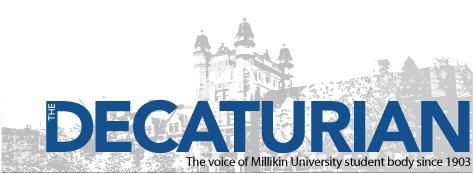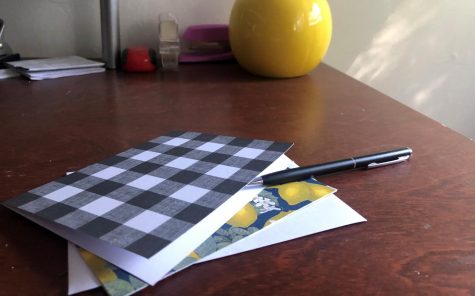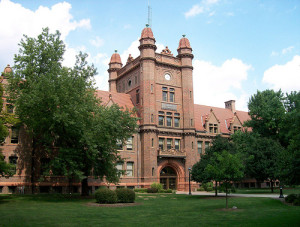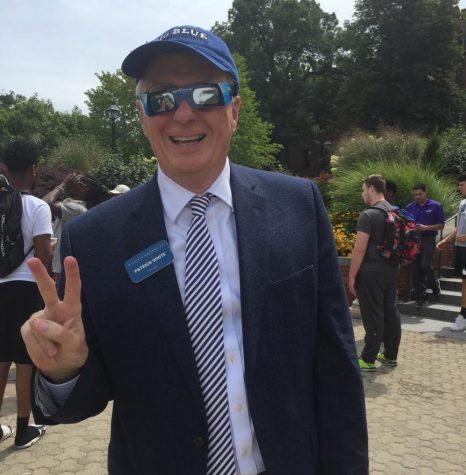Editorial: Foundational Lessons
A few members of the Decaturian staff attended the Illinois College Press Association Awards last weekend. We managed to enter the competition and win six awards: double from what we won last year.
We still need to make improvements so we better benefit our student body, but this has shown that our efforts have been fruitful. Our in-depth reporting, column-writing, editorials all took home well-deserved awards.
The conference, like always, helped us connect with other papers and learn new methods to improve the paper. It also helped us learn from well-known journalists. Though this directly helped us as Dec writers, journalists’ stories can help us all.
The conference began with keynote speaker Carol Manis. She was an investigative reporter with CBS news. She covered organized crime, political corruption, and several other dangerous operations. She even told a story about how she received a threat from a hitman.
Manis is also a self-proclaimed expert at “chasing politicians.” One piece of her advice for running after a politician was to keep your voice steady and to have your question ready-to-go when you get close enough to see them.
Some more of her advice, which might be the most important piece, was that no matter what you do–what project you work on–it will be a foundational piece for something you will do later.
She also told everyone, “If you’re 51% proud of what you do-it’s a fantastic day. You can live with the other 49%”
This is advice that works well for all students.
With those parting words, the Dec staff went their ways to attend the sessions held in various rooms throughout the hotel.
On Saturday, all the Dec staff attended the same second session: If You Want to Work in Journalism, Start Networking Now, Now as in Yesterday with self-described recovering journalist Ralph Braseth.
Braseth presented a copy of his nine commandments for successful networking for everyone. He also handed a blank piece of paper to everyone for listing the top three personal qualities about themselves.
Networking is very important for journalists and newspapers, both before and post graduation from college. As Braseth explained during his session, “Having just a resume and a cover letter isn’t going to cut it.”
Establishing relationships is also key for gaining success. On a school campus, it’s important to have allies and get involved with other organizations. It also wouldn’t hurt to write a thank you card to everyone who helps you on your journey.
Every school there was competing for ICPA awards, and most of the people there want to have careers in journalism–a declining and highly competitive field.
But even so, students and advisors from other universities were eager to give advice, ask for help, and share what had worked for them. It’s a part of establishing a network in action.
Something that was repeated multiple times throughout the sessions was, “If you’re not pissing people off, you’re not doing your job as a journalist.”
As journalists, we have to remain unbiased and not pick sides. Some stories will upset people, but journalists are not working to please everyone. They’re working to get the true story out, and that’s the most important thing. A story might upset one person, but it might help twenty more.
Student journalists bridge the gap between campus politics and the politics going on in their states and nations. Every campus experiences a level of “milli-bubble,” and student journalists are the bees that leave the hive.
Dec writers left the hive this weekend, and we’re back at Millikin with a greater appreciation for our job on campus. We’re ready to cover the stories that matter, connect with the people around us, and apply the lessons that we learned at ICPA to our careers and our lives.

